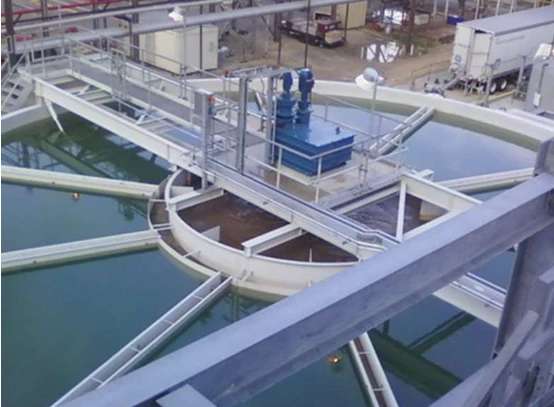
-
 Afrikaans
Afrikaans -
 Albanian
Albanian -
 Amharic
Amharic -
 Arabic
Arabic -
 Armenian
Armenian -
 Azerbaijani
Azerbaijani -
 Basque
Basque -
 Belarusian
Belarusian -
 Bengali
Bengali -
 Bosnian
Bosnian -
 Bulgarian
Bulgarian -
 Catalan
Catalan -
 Cebuano
Cebuano -
 China
China -
 China (Taiwan)
China (Taiwan) -
 Corsican
Corsican -
 Croatian
Croatian -
 Czech
Czech -
 Danish
Danish -
 Dutch
Dutch -
 English
English -
 Esperanto
Esperanto -
 Estonian
Estonian -
 Finnish
Finnish -
 French
French -
 Frisian
Frisian -
 Galician
Galician -
 Georgian
Georgian -
 German
German -
 Greek
Greek -
 Gujarati
Gujarati -
 Haitian Creole
Haitian Creole -
 hausa
hausa -
 hawaiian
hawaiian -
 Hebrew
Hebrew -
 Hindi
Hindi -
 Miao
Miao -
 Hungarian
Hungarian -
 Icelandic
Icelandic -
 igbo
igbo -
 Indonesian
Indonesian -
 irish
irish -
 Italian
Italian -
 Japanese
Japanese -
 Javanese
Javanese -
 Kannada
Kannada -
 kazakh
kazakh -
 Khmer
Khmer -
 Rwandese
Rwandese -
 Korean
Korean -
 Kurdish
Kurdish -
 Kyrgyz
Kyrgyz -
 Lao
Lao -
 Latin
Latin -
 Latvian
Latvian -
 Lithuanian
Lithuanian -
 Luxembourgish
Luxembourgish -
 Macedonian
Macedonian -
 Malgashi
Malgashi -
 Malay
Malay -
 Malayalam
Malayalam -
 Maltese
Maltese -
 Maori
Maori -
 Marathi
Marathi -
 Mongolian
Mongolian -
 Myanmar
Myanmar -
 Nepali
Nepali -
 Norwegian
Norwegian -
 Norwegian
Norwegian -
 Occitan
Occitan -
 Pashto
Pashto -
 Persian
Persian -
 Polish
Polish -
 Portuguese
Portuguese -
 Punjabi
Punjabi -
 Romanian
Romanian -
 Russian
Russian -
 Samoan
Samoan -
 Scottish Gaelic
Scottish Gaelic -
 Serbian
Serbian -
 Sesotho
Sesotho -
 Shona
Shona -
 Sindhi
Sindhi -
 Sinhala
Sinhala -
 Slovak
Slovak -
 Slovenian
Slovenian -
 Somali
Somali -
 Spanish
Spanish -
 Sundanese
Sundanese -
 Swahili
Swahili -
 Swedish
Swedish -
 Tagalog
Tagalog -
 Tajik
Tajik -
 Tamil
Tamil -
 Tatar
Tatar -
 Telugu
Telugu -
 Thai
Thai -
 Turkish
Turkish -
 Turkmen
Turkmen -
 Ukrainian
Ukrainian -
 Urdu
Urdu -
 Uighur
Uighur -
 Uzbek
Uzbek -
 Vietnamese
Vietnamese -
 Welsh
Welsh -
 Bantu
Bantu -
 Yiddish
Yiddish -
 Yoruba
Yoruba -
 Zulu
Zulu
frp field tank
The FRP Field Tank A Modern Solution for Storage Needs
In recent years, the demand for efficient and reliable storage solutions has surged across various industries, including agriculture, water treatment, and chemical processing. One standout innovation that has gained traction is the Fiber Reinforced Plastic (FRP) field tank. This modern storage option combines durability, lightweight characteristics, and resistance to corrosive materials, making it an ideal choice for many applications.
What is FRP?
Fiber Reinforced Plastic, commonly referred to as FRP, is a composite material made by combining a polymer matrix with fibers—most often glass, carbon, or aramid. These fibers provide strength and rigidity, while the plastic matrix serves as a protective barrier against environmental factors. This combination results in a material that is both robust and lightweight, outperforming traditional materials such as steel or concrete in many scenarios.
Advantages of FRP Field Tanks
1. Corrosion Resistance One of the most significant advantages of FRP field tanks is their resistance to corrosion. Unlike metal tanks that can rust when exposed to moisture or corrosive liquids, FRP tanks can withstand various chemicals without deteriorating. This makes them particularly useful in industries handling aggressive substances, such as chemicals and fertilizers.
2. Lightweight FRP tanks are considerably lighter than their metal or concrete counterparts. This characteristic simplifies transportation and installation, reducing labor costs and time. Additionally, the lightweight nature of FRP allows for easier relocation, making it ideal for agricultural settings where tanks often need to be moved based on seasonal requirements.
3. Durability and Longevity FRP materials exhibit exceptional durability. They are designed to withstand harsh environmental conditions, including extreme temperatures and UV exposure. As a result, FRP field tanks can have a longer lifespan, typically lasting several decades when properly maintained. This long-lasting quality represents a significant cost-saving factor over time.
frp field tank

4. Customizability FRP tanks can be molded into various shapes and sizes, making them highly customizable to meet specific requirements. Whether for storing water, wastewater, or chemicals, tanks can be designed to fit unique spatial constraints and storage needs, resulting in a tailored solution for any application.
5. Environmental Friendliness With increasing awareness surrounding environmental sustainability, the use of FRP materials aligns with eco-friendly practices. FRP can be manufactured from recycled materials, and its long lifespan contributes to reduced waste in the long run.
Applications of FRP Field Tanks
FRP field tanks are highly versatile and find applications across numerous sectors
- Agriculture In farming, these tanks are used for storing water, fertilizers, and other agricultural chemicals. They can be strategically placed in fields for efficient irrigation systems. - Water and Wastewater Treatment Municipalities often employ FRP tanks for storing treated water and sewage because of their resistance to corrosive effluents. - Chemical Processing FRP tanks are commonly utilized in the chemical industry for safely storing and processing hazardous materials. - Food and Beverage The non-reactive nature of FRP makes these tanks suitable for food-grade storage, ensuring product integrity and safety.
Conclusion
The advent of FRP field tanks represents a significant advancement in storage technology. With their numerous benefits, such as corrosion resistance, lightweight design, durability, and customizability, FRP tanks offer a reliable and efficient alternative to traditional storage methods. As industries continue to evolve and demand innovative solutions, FRP field tanks stand out as a modern answer to an age-old problem, providing the functionality and performance needed for various applications. As we embrace sustainable practices and seek durable infrastructure, FRP field tanks will undoubtedly play a vital role in the future of storage solutions.









